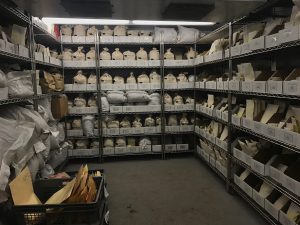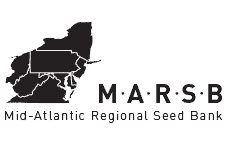What Is Seed Banking?
Seed Banking is the ex situ conservation of seeds, or the storage of seeds away from their natural habitats. Because seeds are easy to handle and require minimal storage space, seed banking is an economical approach to ensure the long-term survival of plant species faced with habitat destruction and ecological changes. This is not to say that seed banking is a substitute for the conservation of plants in their natural environment, known as in situ conservation, rather it is a powerful complement to that work.
A seed bank is a controlled environment in which germplasm (seed) can be stored to maintain viability for an extended period of time. The majority of species (upward of 85% of species) can be safely stored by desiccating the seed, sending it into extended dormancy. The dormant seed, with lowered metabolic activity remains stable and viable for prolonged periods of time. Such seeds are said to be orthodox with regards to exposure to desiccation. The Mid-Atlantic Regional Seed Bank, by international standards, is considered an active, mid-term storage facility. Seed collections that are stored at MARSB will be made available to the region for propagation and plant material development to serve the current and future needs of restorationists and land managers. These collections are stored at a relative humidity of about 15%. Seed at the MARSB/GNPC seed bank can be stored at three temperatures- 1) 60 degrees Fahrenheit); 40 degrees Fahrenheit and at 0 degrees Celsius. Storage temperature is determined by best available longevity data for individual species. (Roughly 15% of the worlds species cannot be desiccated and stored and must be used fresh, approximately within the year it is collected. These seeds are termed recalcitrant).
Through our partnership with Seeds of Success (SOS), duplicate collections will be secured in long-term conservation storage at minus 20 degrees Celsius (-4 degrees Fahrenheit). Two US Department of Agriculture, Agriculture Research Service facilities are responsible for the curation of these collections under agreement with the SOS program.
